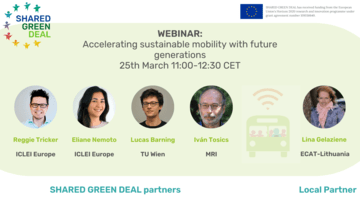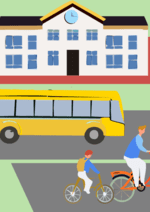Kids behind the wheel: cleaning up the school run in Panevezys, Lithuania
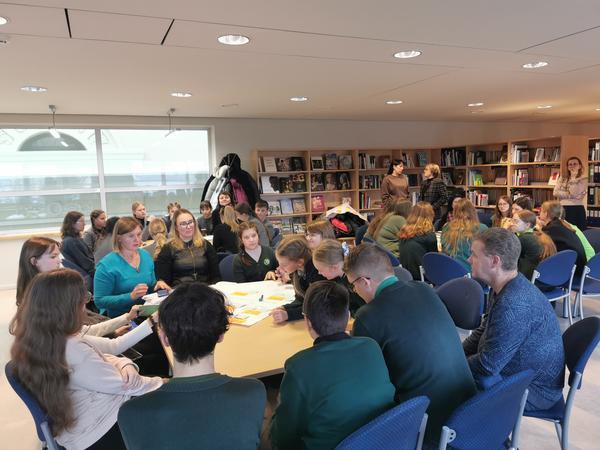
Getting through the school run is a problem that all parents have to face, and it’s one with some thorny challenges: how can kids get to school safely and on time? Mornings with little ones can be stressful enough without having to worry about road safety awareness, air pollution or the risk of traffic accidents. But the flood of parents driving their students to school also has knock-on effects for other citizens too: big surges in traffic causing spikes in air pollution and delays to journeys.
But now, following its engagement in the SHARED GREEN DEAL project, one city in Lithuania is road-testing (!) a new solution to the school run challenge: asking the kids themselves.
Setting out on the road
Many Lithuanian cities have a legal responsibility to reduce air and noise pollution as well as energy consumption, as part of a European initiative towards developing Sustainable Urban Mobility Plans (SUMPs). But these plans require the active involvement and education of members of the community. The local SGD partner, the Environmental Center for Administration and Technology (ECAT) realised that school children’s voices on transport were not being listened to and set out to change that.
In partnership with the SGD organisations, ECAT designed a series of “mobility labs” to engage school communities in sustainable mobility practices. The primary goals were to raise awareness about climate change, help school communities understand their role in city mobility, and encourage young people to participate actively in city life. Three schools in Panevezys got on board, with more than 30 students, teachers, and parents coming along for the ride.
Sustainable Urban Mobility Plans (SUMPs)
A Sustainable Urban Mobility Plan is a strategic plan designed to satisfy the mobility needs of people and businesses in cities and their surroundings for a better quality of life. It builds on existing planning practices and takes due consideration of integration, participation, and evaluation principles.
The city of Panevezys developed it’s first SUMP in 2017
Making the journey more exciting
Members of the labs were empowered to engage directly with external experts on sustainable transport, allowing them to collaborate in co-creative sessions. These sessions aimed to understand the current mobility situation, identify problems, and develop ideas to promote sustainable mobility among young people.
But because many of the participants were children, novel methods were used to make the process both engaging and educational. Students mapped travel problems using coloured stickers and prioritized issues with coloured dots. Understanding that young people enjoy being active, the labs got the kids to map out their routes to school, and conducted “Walk audits” over the summer to analyse the most popular journeys. These findings were shared in forums, leading to active discussions and idea exchanges on promoting sustainable mobility in schools.
One of the key activities was the development of school travel plans (STPs) for the participating schools. These plans were designed to provide a structured approach to improving school travel and included guidelines for creating STPs, an education and activities toolkit, and policy recommendations for school travel strategies at the city level.
And, to get schoolkids into gear, ECAT designed a fun game, “Let’s grow the sustainable trips tree”, which students could play to get them thinking about how their journeys might become greener and safer.
All achievements and results were presented at a final conference, attended by teachers, students from other Panevezys schools, and various stakeholders, including municipal officials, police officers, and public health workers. Finally, ECAT conducted 10 interviews with students, teachers, and parents to better understand how the different stakeholders had felt about the project, and how they thought it could be improved for the future.
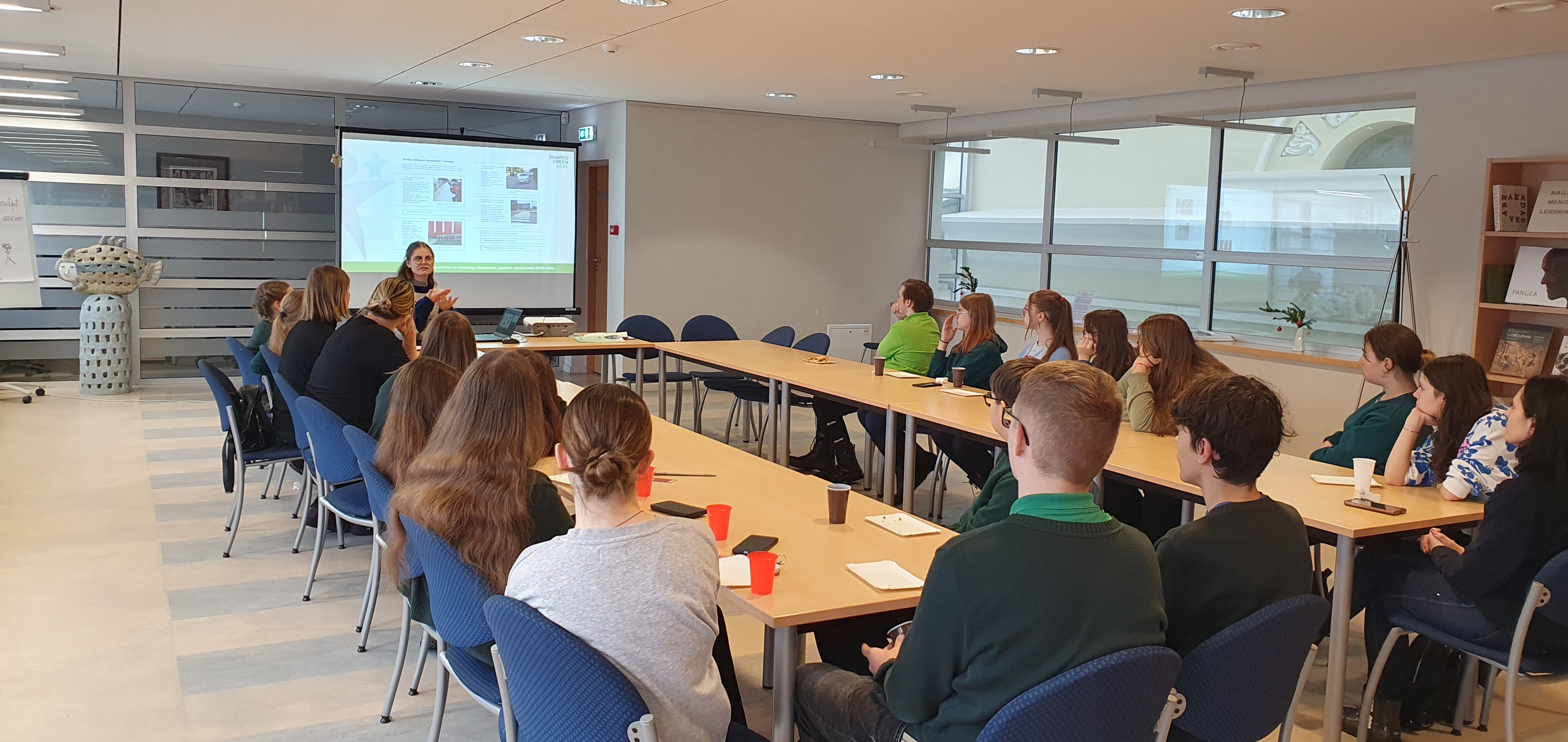
A voyage of discovery
The impact of the experiment on children’s lives has been profound. By participating in the urban mobility lab and related activities, students gained a deeper understanding of sustainable mobility and its importance. They became more aware of the environmental impact of their travel choices and were encouraged to adopt more sustainable practices.
The experiment also fostered a sense of responsibility and active participation among the students. They were not just passive recipients of information but active contributors to the development of solutions. This involvement helped them feel more connected to their community and more empowered to make a difference.
As Lina Gelaziene, Director at ECAT, puts it, “Hopefully politicians will see that young people also want to do something for their city… and that there are ways to cooperate and make political decisions with public understanding and support.”
The future destination: green school travel for all
The success of the experiment has laid a strong foundation for future actions. The three participating schools will continue working on sustainable mobility by implementing their prepared School Travel Plans. They will be supported by the developed education and activity toolkit, and other schools in Panevezys can learn from their experiences and use the developed guidelines to prepare their own plans for how to support the kids on the morning commute.
What’s more, several schools have indicated that they will continue to re-use the “Trips Tree” game in classroom, to foster conversations about transport and sustainability. It’s hoped that this increased awareness and understanding of sustainable travel among schoolchildren will lead to tangible shifts in behaviour – after all, as any parent knows, kids can be very persuasive when they want to be!
The social experiment in Panevezys has shown that engaging school communities in sustainable mobility can have a significant impact on the lives of children and their journeys to school. By raising awareness, fostering active participation, and developing practical solutions, the experiment has empowered young people to contribute to a more sustainable future. As these initiatives continue to grow and evolve, they hold the promise of driving lasting change in the community.
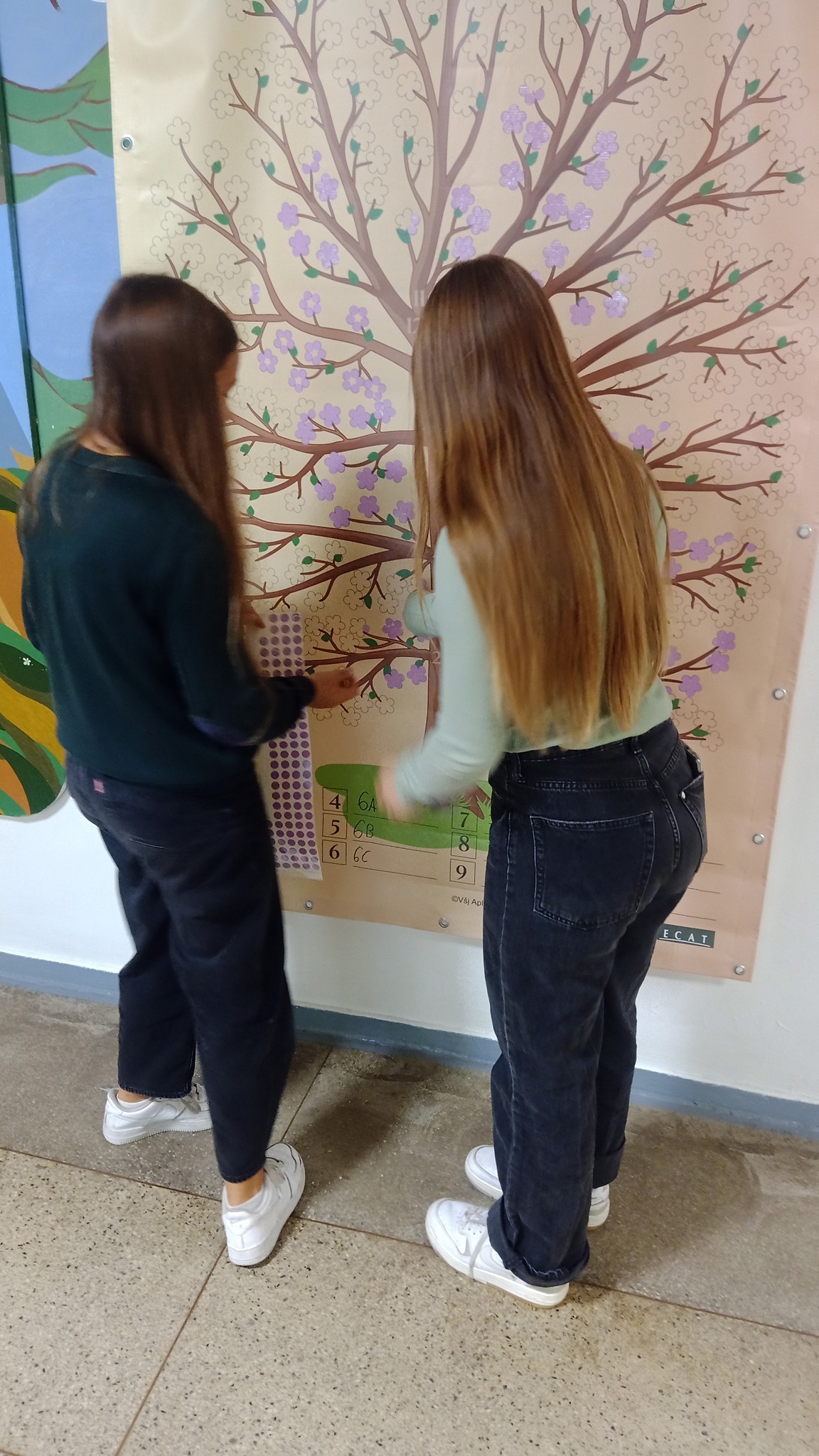
Related Green Deal Priorities
Related localities
Related events
Related Resources


CONTACT
For further details please contact co-leads Professor Chris Foulds (chris.foulds@aru.ac.uk) and Professor Rosie Robison (rosie.robison@aru.ac.uk).

This project has received funding from the European Union’s Horizon 2020 research and innovation program under grant agreement No 101036640. The sole responsibility for the content of this website lies with the SHARED GREEN DEAL HAS project and does not necessarily reflect the opinion of the European Union.


